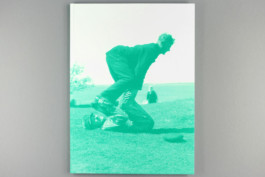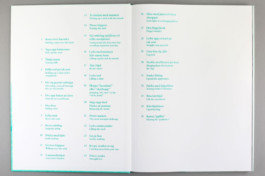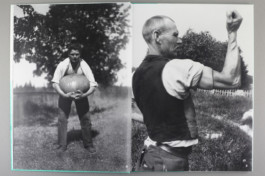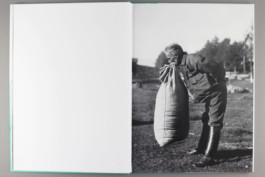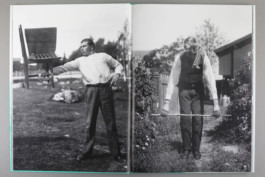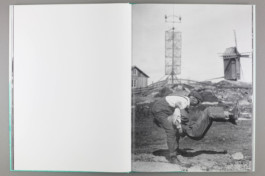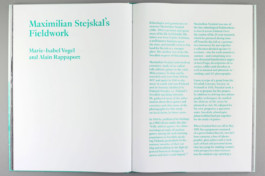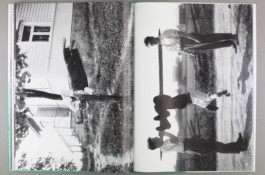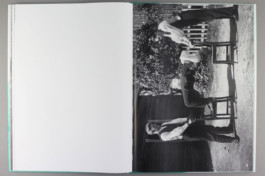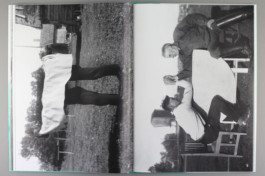Maximilian Stejskal - Folklig Idrott
Maximilian Stejskal (1906-1991), an ethnologist and gymnastics teacher from Helsinki, carried out a study for his PhD thesis on “folk athletic” contests amongst Finland’s Swedish-speaking male rural population in the early 20th century. For his study Stejskal biked across large swaths of southern and eastern Finland as well as Estonia for a month or two every year from 1929 to 1937 and then again in 1948, equipped with two bellows cameras and a box of photographic glass plates. On these excursions he systematically collected information about the traditional games, or “folk athletics” as he calls them, which were hardly practiced anymore even then. For the most part elderly farmers and craftsmen would tell him in detail about the exercises and tests of strength and courage with which they had tried to prove their virility in their younger days. According to these descriptions, their sons, relatives and farm hands were asked to perform the exercises in front of the camera so Stejskal could photograph them. During his field research, which took over 20 years, Stejskal amassed a considerable collection of documentation, which he divided up into 11 different sections, one for each excursion. It comprises over two thousand handwritten pages of travelogs, descriptions of exercises, tables, sketches, musical and phonetic recordings and 433 photographs. This book focuses on a selection of those photographs.
Editor: Marie-Isabel Vogel, Alain Rappaport
Designer: Prill Vieceli Cremers
Publisher: Edition Patrick Frey
Text: Maximilian Stejskal, Marie-Isabel Vogel, Alain Rappaport
First edition: 800 ex./ 2016
Second edition: 800 ex./ 2016
ISBN: 978-3-906803-02-9
Hardcover, 120 pages
74 B/W images
350 x 255 mm
Maximilian Stejskal - Folklig Idrott
Maximilian Stejskal (1906-1991), an ethnologist and gymnastics teacher from Helsinki, carried out a study for his PhD thesis on “folk athletic” contests amongst Finland’s Swedish-speaking male rural population in the early 20th century. For his study Stejskal biked across large swaths of southern and eastern Finland as well as Estonia for a month or two every year from 1929 to 1937 and then again in 1948, equipped with two bellows cameras and a box of photographic glass plates. On these excursions he systematically collected information about the traditional games, or “folk athletics” as he calls them, which were hardly practiced anymore even then. For the most part elderly farmers and craftsmen would tell him in detail about the exercises and tests of strength and courage with which they had tried to prove their virility in their younger days. According to these descriptions, their sons, relatives and farm hands were asked to perform the exercises in front of the camera so Stejskal could photograph them. During his field research, which took over 20 years, Stejskal amassed a considerable collection of documentation, which he divided up into 11 different sections, one for each excursion. It comprises over two thousand handwritten pages of travelogs, descriptions of exercises, tables, sketches, musical and phonetic recordings and 433 photographs. This book focuses on a selection of those photographs.
